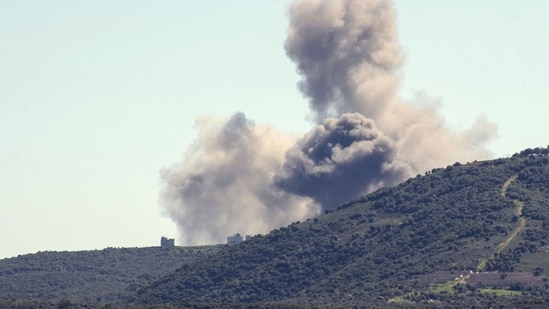The UN Rights chief’s statement regarding war crimes committed by all parties in the Israel-Hamas conflict underscores the severity of the situation and the urgent need for accountability. Here’s an analysis of the implications of this statement:
Neutral Assessment: The acknowledgment of war crimes by all parties demonstrates a neutral stance by the UN Rights chief, emphasizing the importance of impartiality in addressing human rights violations. This recognition is crucial for fostering transparency and credibility in investigations and accountability processes.

SOURCE:- INDIA TODAY
Calls for Accountability: By condemning war crimes committed by both Israel and Hamas, the UN Rights chief is signaling the necessity for accountability on all sides. This includes thorough investigations into alleged violations of international humanitarian law and holding perpetrators accountable for their actions, regardless of their affiliation.
SOURCE:- WION
Humanitarian Concerns: The acknowledgement of war crimes highlights the grave humanitarian impact of the Israel-Hamas conflict on civilians. Both Israeli airstrikes and Hamas rocket attacks have resulted in civilian casualties and widespread destruction, exacerbating an already dire humanitarian situation in the region.
International Pressure: The UN Rights chief’s statement may increase international pressure on both Israel and Hamas to adhere to international law and respect human rights standards. It could spur diplomatic efforts to broker a ceasefire and facilitate negotiations for a lasting resolution to the conflict.
Role of the International Community: The UN Rights chief’s condemnation underscores the responsibility of the international community to address and prevent further violations of international law in the Israel-Hamas conflict. It calls for robust diplomatic engagement and support for initiatives aimed at de-escalation and conflict resolution.
Long-term Implications: Addressing war crimes committed by all parties in the Israel-Hamas conflict is essential for building trust, promoting reconciliation, and preventing future cycles of violence. Failure to hold perpetrators accountable could perpetuate a culture of impunity and undermine prospects for a just and sustainable peace in the region.
the acknowledgment of war crimes by all parties in the Israel-Hamas conflict by the UN Rights chief highlights the urgent need for accountability, respect for international humanitarian law, and concerted efforts to address the humanitarian crisis in the region. Moving forward, the international community must prioritize diplomatic engagement and support initiatives aimed at ending the cycle of violence and advancing a durable peace settlement.
Share your views in the comments
